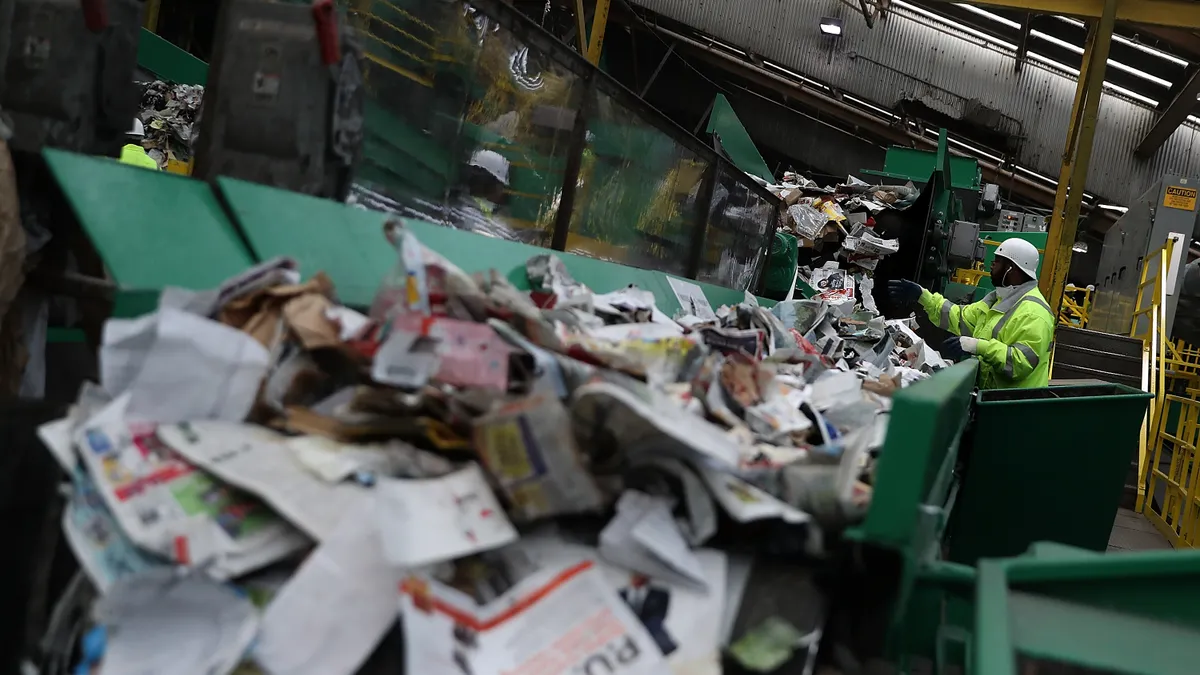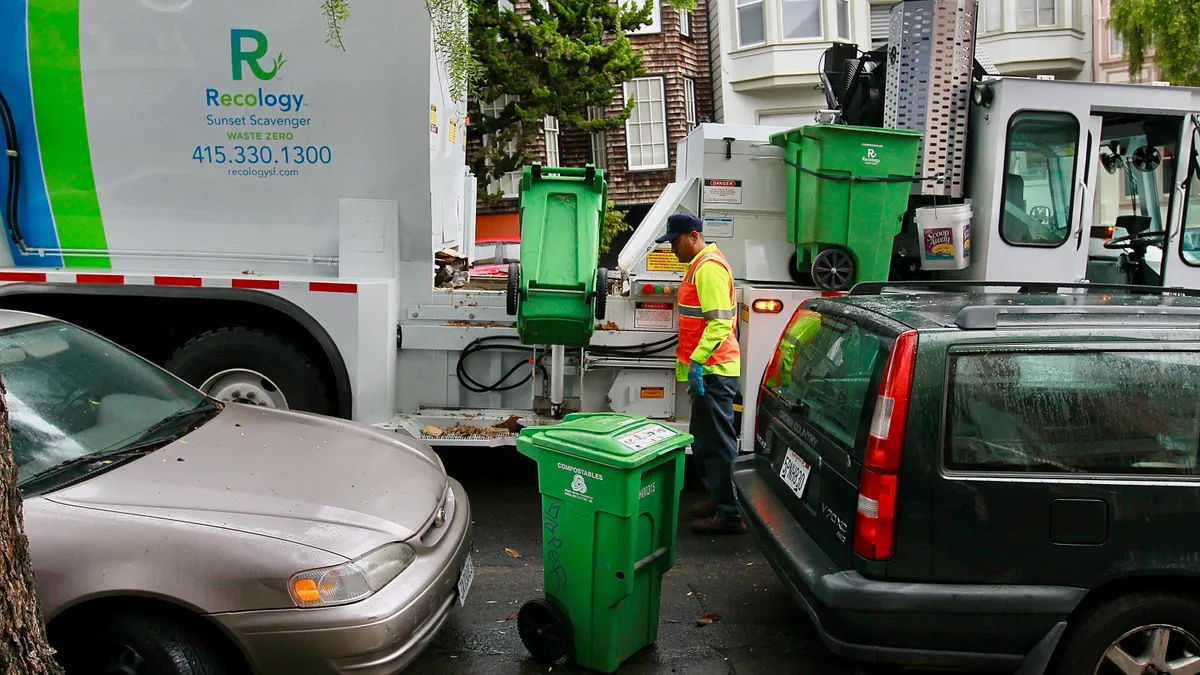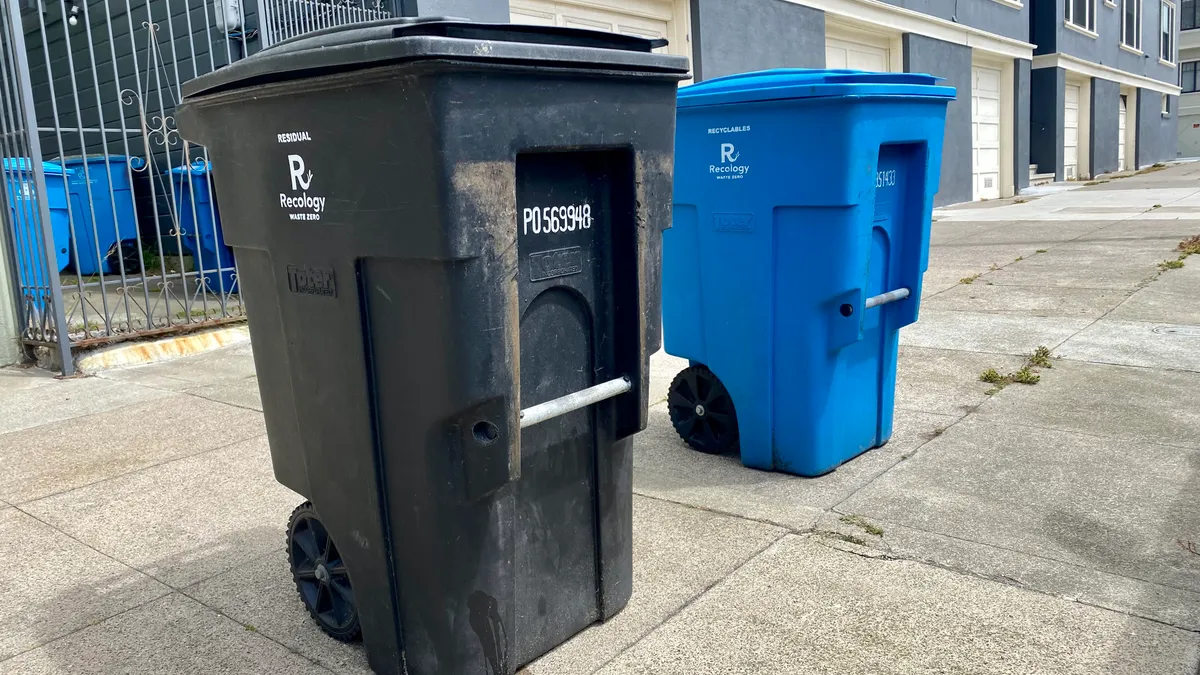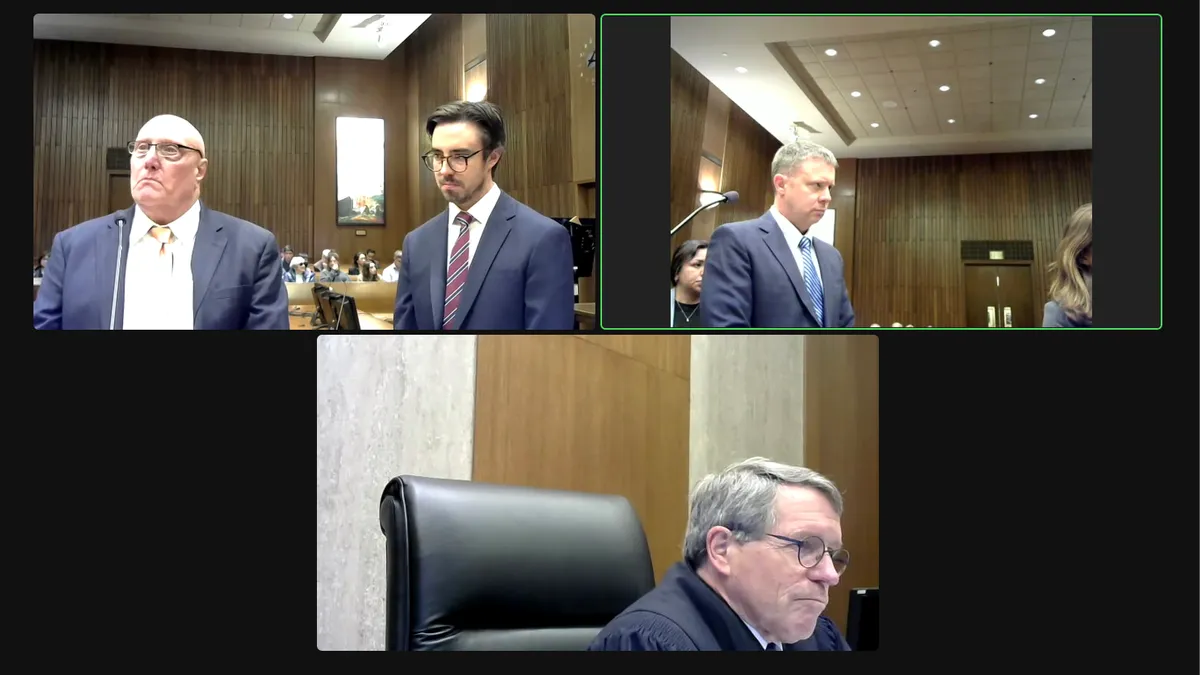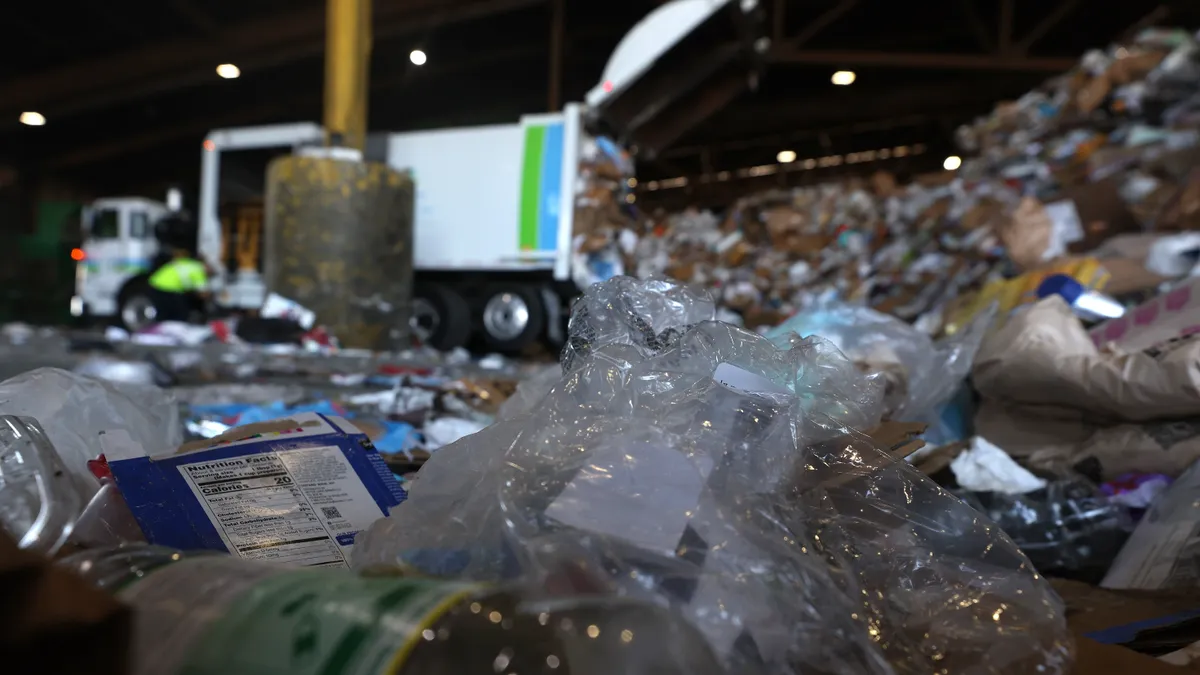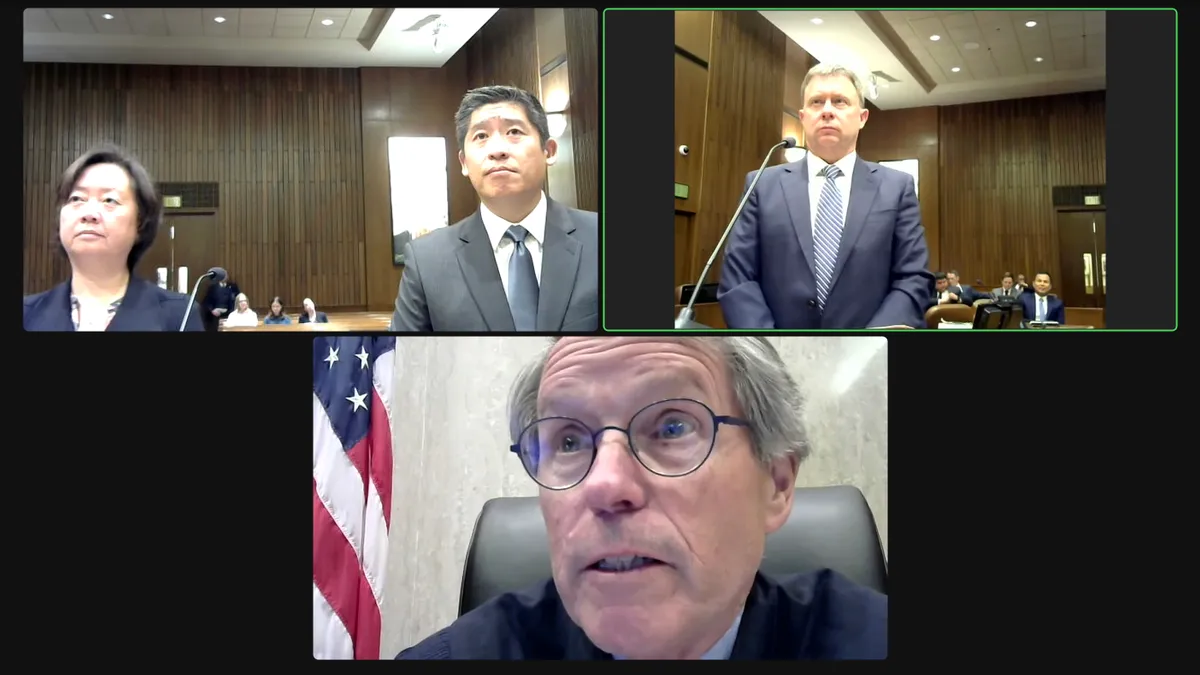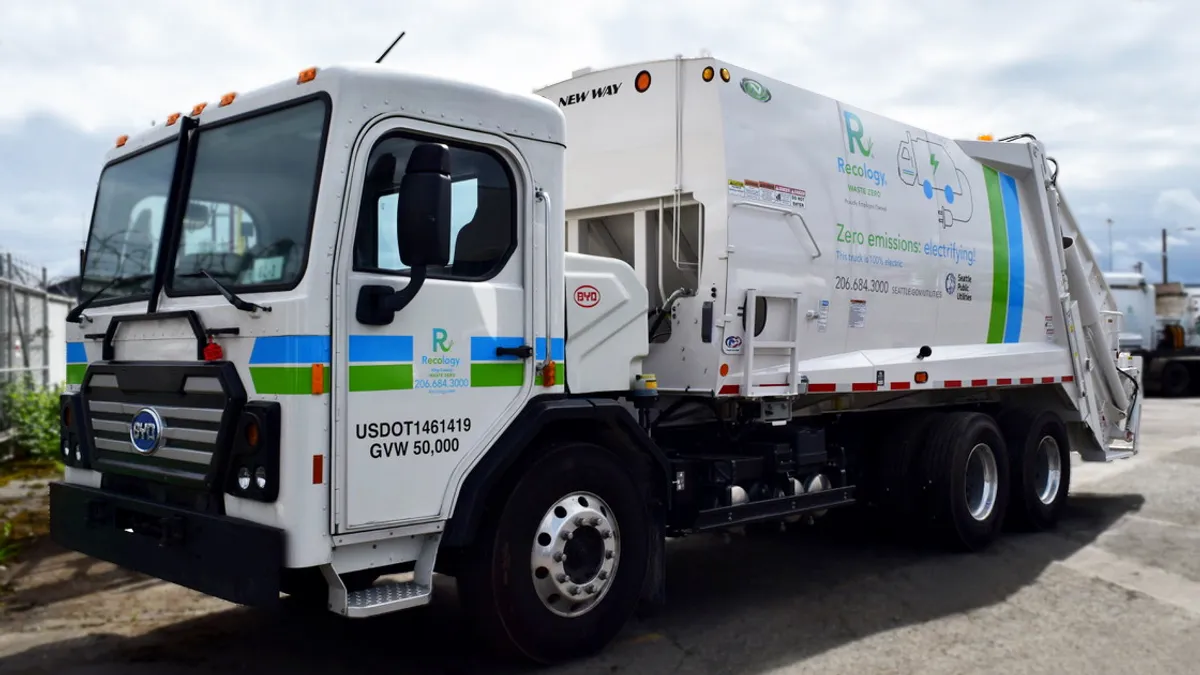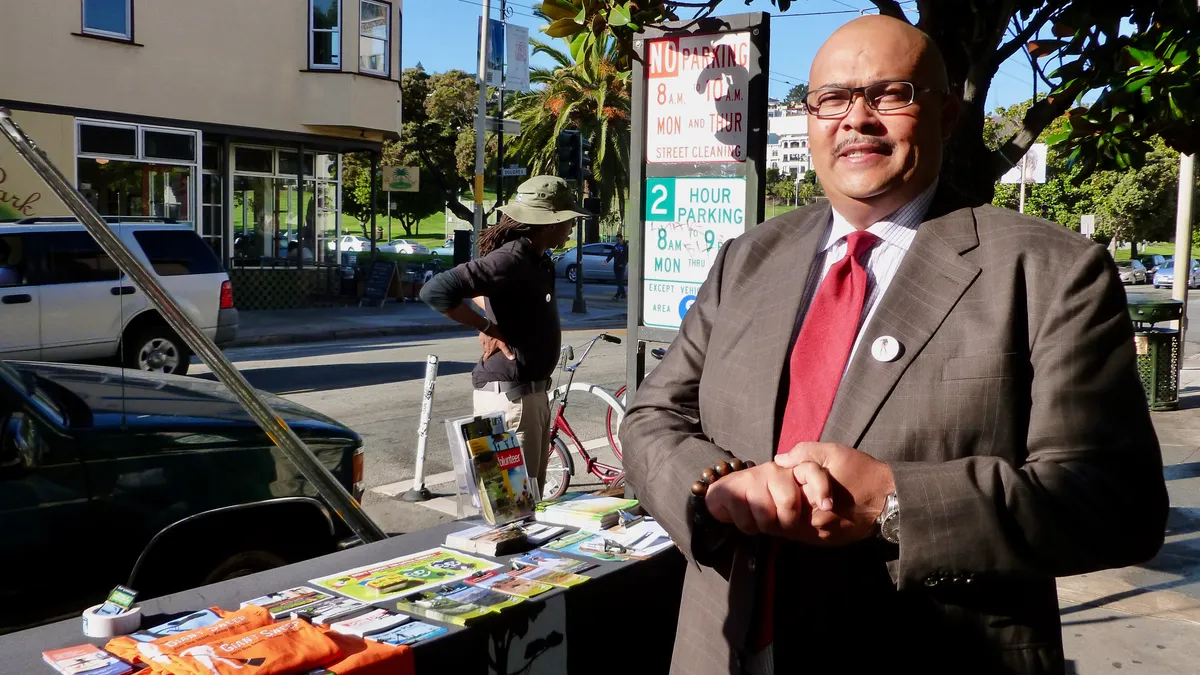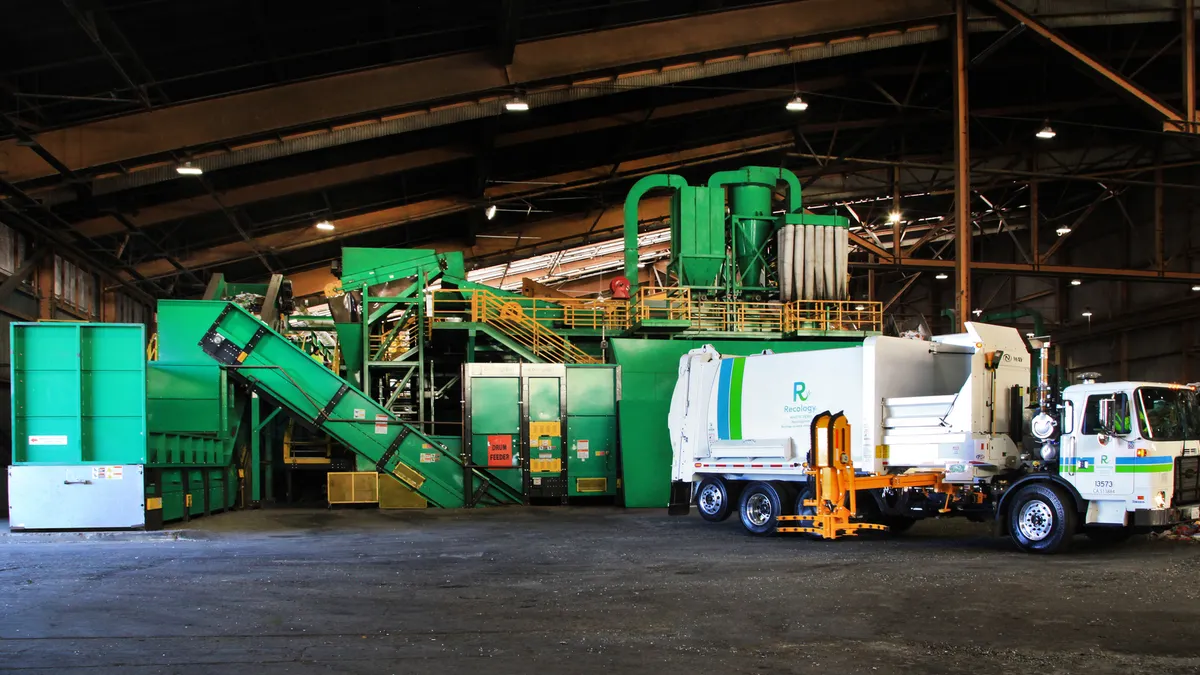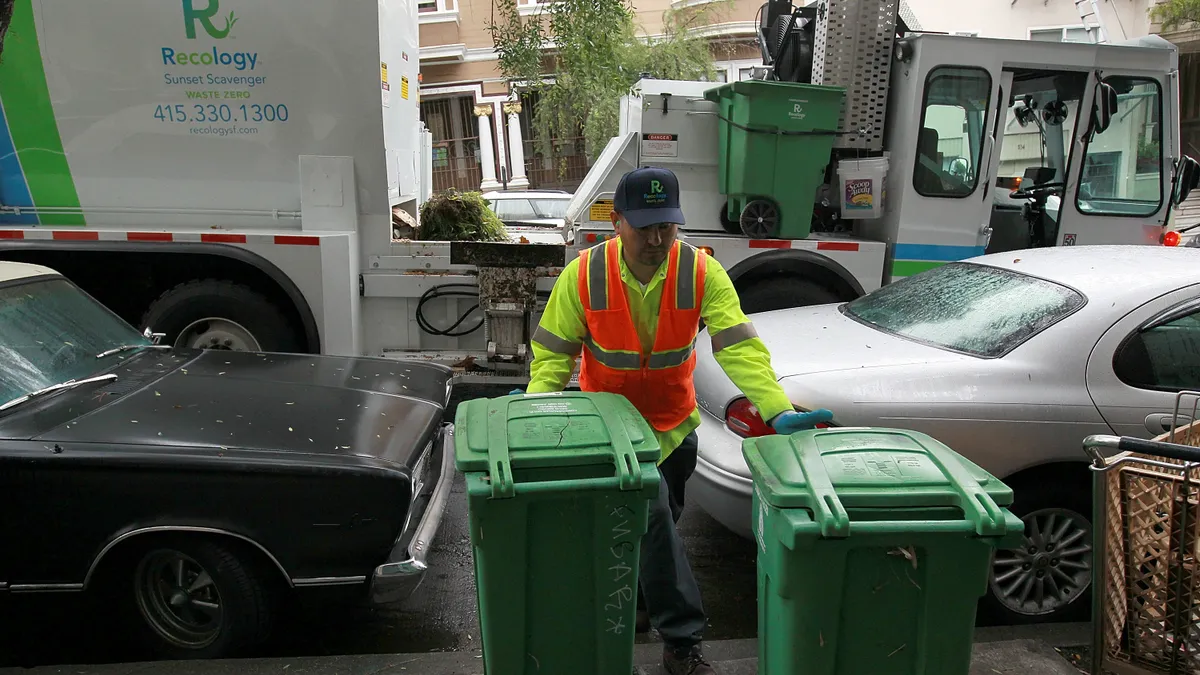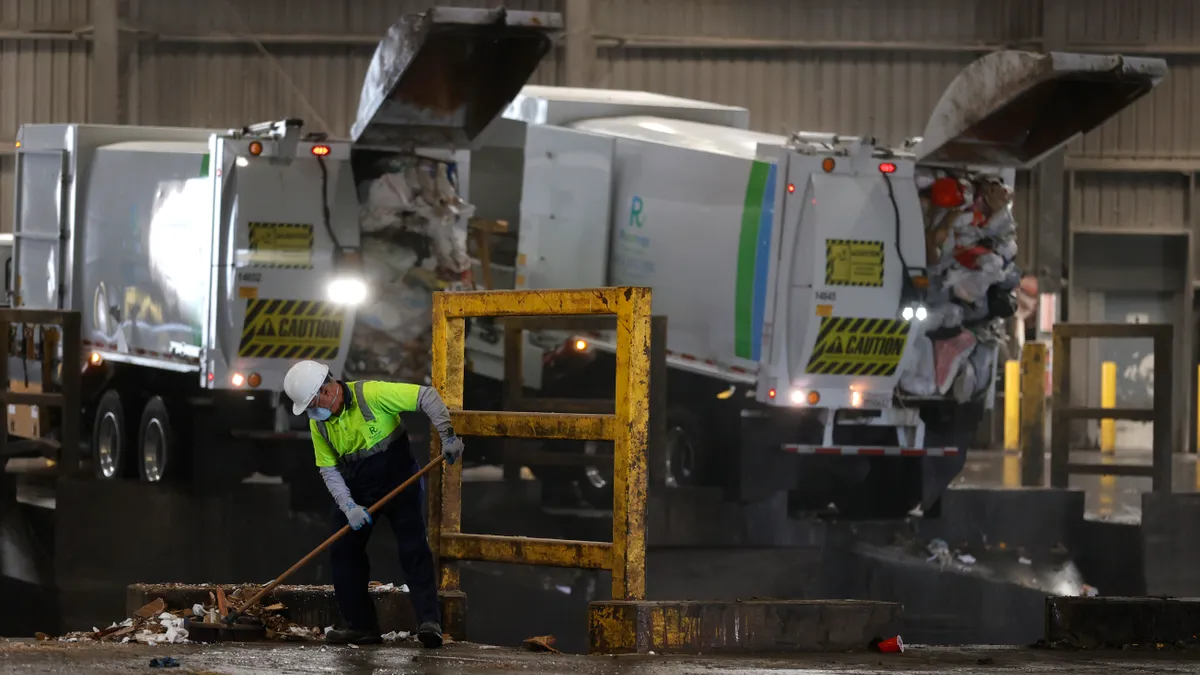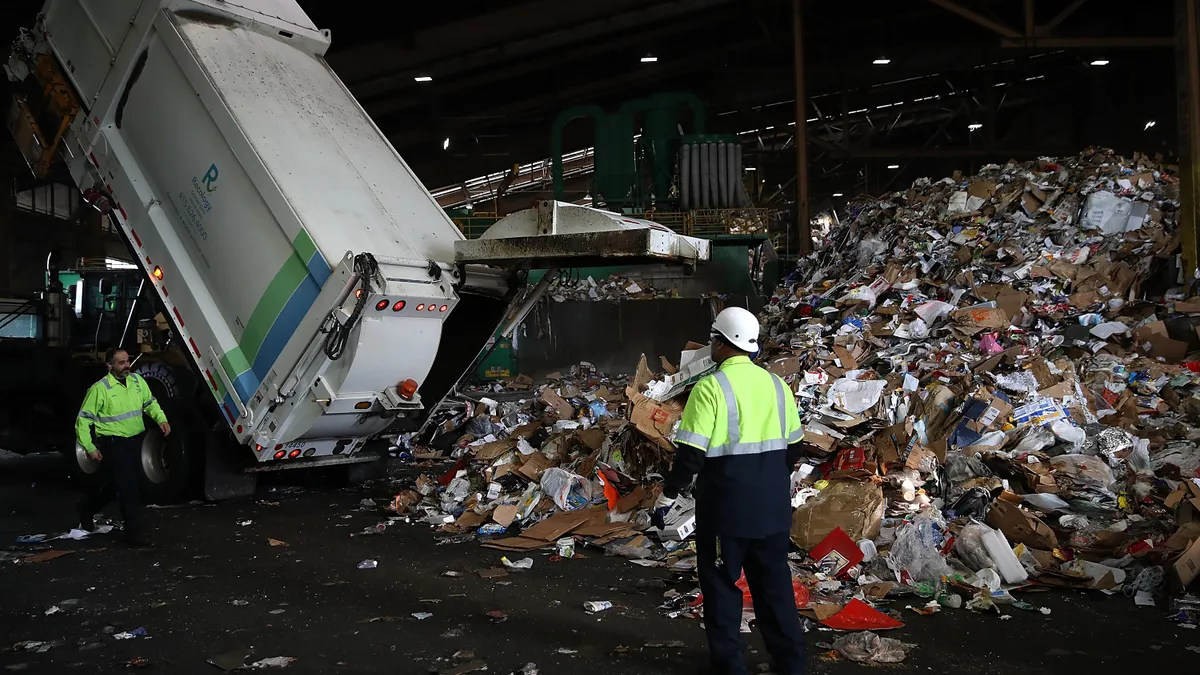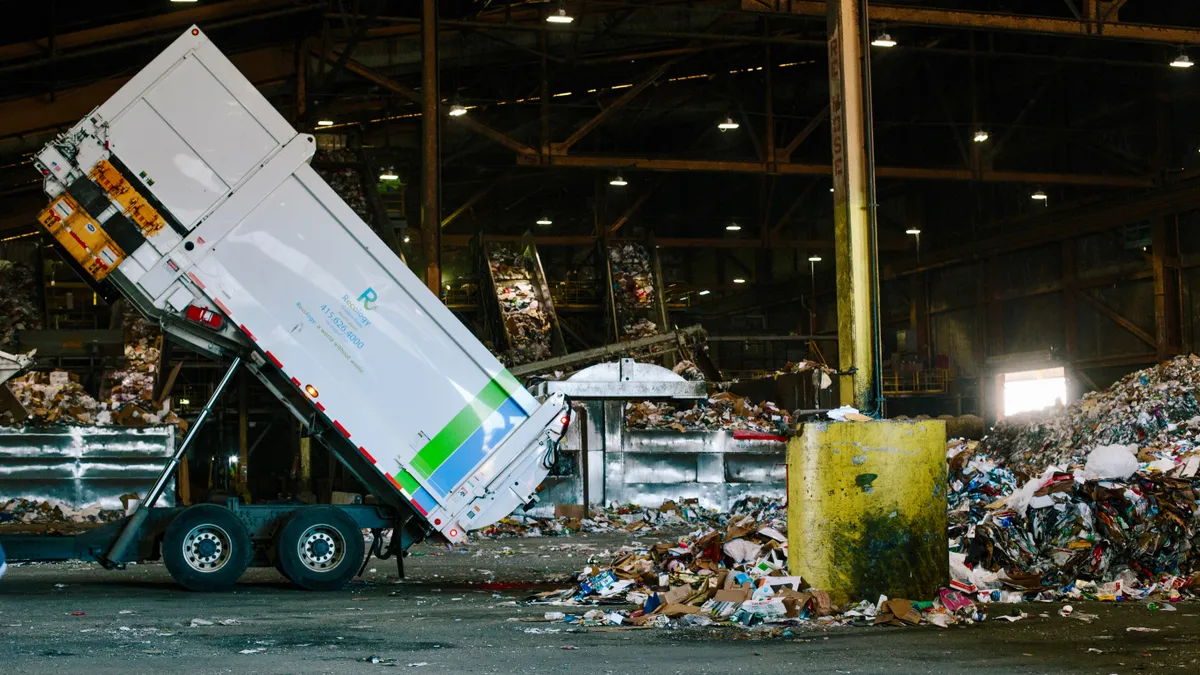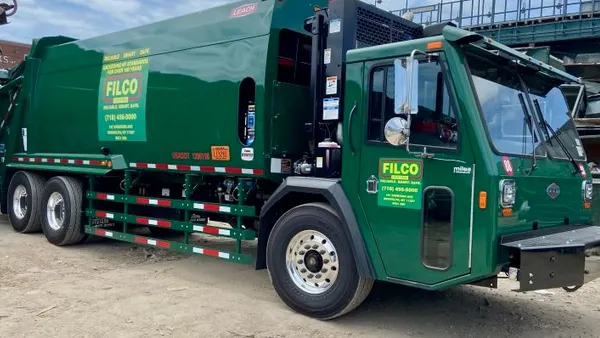The San Francisco City Attorney's Office has reached a settlement with Recology, collectively valued at $107.6 million, stemming from inaccurate rate increases disclosed during an ongoing public corruption investigation as well as unfair competition practices. This news comes as competitors and critics have already been looking for ways to potentially chip away at the company's exclusive lock on the local market.
The deal, announced Thursday, comes after Recology's former government and community relations manager for the area, Paul Giusti, was charged in federal court for allegedly trying to influence a former city official via bribes and other actions. That official helped approve a more than 14% rate increase for the company in 2017. According to the new settlement, Recology used inaccurate calculations to justify that increase and no corrective action was taken by either party once it was discovered.
“This overcharge to ratepayers was a direct result of the cozy relationship and lax oversight of Recology that the Department of Public Works had under its former director, Mohammed Nuru," said City Attorney Dennis Herrera in a press conference.
In a statement, Mayor London Breed called the case "appalling" and described the settlement as "an important step as part of our long road to restoring the public trust."
The news comes after the West Coast company announced the retirement of its longtime CEO and chairman of the board in January, which it said was unrelated to the corruption investigation. A release about the settlement said Recology "has already implemented significant measures to improve its compliance policies, training, and procedures" and included a quote from the new board chair supporting current leadership.
“As soon as we learned of the mistake, we took immediate action. We are grateful to the City Attorney for helping us reach a resolution that benefits our San Francisco customers. We are reviewing our internal processes and working with the City to ensure an issue like this never reoccurs," said CEO Sal Coniglio in a statement.
In the meantime, Waste Management and Republic Services have already been advocating for one Recology contract to go out for bid and efforts are brewing to potentially challenge the company's exclusive status on the ballot.
The settlement
Following initial charges against Nuru in January 2020, Recology was one of multiple parties subpoenaed by Herrera's office for information about its donations to related nonprofits, communications with the city's Refuse Collection and Disposal Rate Board and other items. According to Herrera, the company was "forthcoming and cooperative" in an investigation conducted with the city controller's office.
As described in the settlement, Recology "failed to accurately account for revenues they were slated to receive from rate payers that were ear-marked for the Zero Waste Incentive Fund and the Impound Account" in 2017. This led to Nuru and the rate board approving a more than 14% rate increase, when less than 7% was justified. Staff from Public Works and Recology's local division identified and discussed this issue in 2018, but "no action was taken" by anyone "to publicly disclose or correct the error."
In Recology's telling, an "inadvertent" spreadsheet error was the cause and it "has not identified any evidence indicating that the mistake was intentional." The company said local staff informed multiple city agencies, and a consultant, but said top leadership and board members didn't learn of the issue until it was uncovered in an unrelated investigation by outside counsel last November. Recology disclosed this to city investigators in December.
Now, Recology and its affiliate companies will reimburse an estimated 160,000 residential and commercial ratepayers with active accounts at any point between July 1, 2017 and March 30, 2021 for excess charges, plus 5% interest, totaling $94.5 million. Recology must reimburse all current customers by September, continue outreach to former customers through December and eventually set aside any remaining balance "to offset any future refuse rate increases." Recology will also lower upcoming rates from April through June, at a value of $6.1 million.
Additionally, Recology will pay $7 million for violations of the California Unfair Competition Law and the San Francisco Campaign and Governmental Conduct Code for the rate miscalculation and gifts to city officials – without admitting any liability.
While the settlement relates in part to the pending charges against Giusti, Herrera specified no individuals are named in the settlement. Instead, the corporate entity and its subsidiaries are cited because unspecified employees "regularly provided gifts of money, meals, and accommodations to City employees, allegedly to influence City decisions affecting Recology" from 2016 to 2020.
In some cases these benefits were allegedly solicited by Nuru, with some gifts "disguised as charitable contributions to nonprofits," including at least $60,000 for holiday parties hosted by the former director. Recology did not respond to a question on whether it agrees with the characterization of its gifts in the settlement prior to publishing time. The company previously took issue with the allegation it also directed more than $1 million to Nuru through other nonprofits. Those donations were not referenced in the settlement.
The settlement includes a four-year injunction in San Francisco Superior Court prohibiting Recology from giving gifts to city employees or making nonprofit contributions at their behest. This comes with multiple disclosure requirements around engaging with city staff and officials.
While outside public corruption experts previously speculated the Giusti case could lead to charges against other current or former Recology employees, that has not occurred to date. Giusti's next court appearance is March 11. In the meantime, the broader Nuru scandal continues to affect a number of former officials and other contractors as federal and city prosecutors proceed.
“Our investigation is ongoing, it’s far-reaching and we will look to root out any untoward conduct wherever it is," said Herrera.
The fallout
While Recology maintains a dominant position in its headquarter city, given an exclusive set of hauling permits dating back to a 1932 ordinance, the scandal has emboldened major competitors and others seeking to change that.
Last year, San Francisco's Board of Supervisors was in the final stages of approving a six-year collection municipal building contract (with the option to extend for up to four more) worth up to $62.5 million. Aside from elements such as a new composting credit "to incentivize waste diversion," the contract was largely a standard update. But after the Giusti charges, supervisors sent it back to the Budget & Finance Committee for reconsideration on Dec. 1.
Republic Services later sent a letter to committee members advocating the contract be opened up to competitive bidding for greater transparency.
“We have the local resources, expertise, equipment and infrastructure to provide the services needed for the City facilities through our operations located just south of San Francisco in Daly City," wrote General Manager Travis Armstrong on Dec. 11.
Following the settlement news, Armstrong said Republic supports the concept of San Francisco potentially putting other aspects of waste and recycling service out to bid, following the necessary legal changes, "but it would be a very complicated process and some significant issues would need to be addressed to ensure that all potential proposers were on the same level playing field."
"One way to do so would be to follow a similar process that the City of Los Angeles did in their last RFP to modernize their programs while creating a fair and equitable rate system," he wrote via email. "Another option would be to permit more haulers or make recycling non-exclusive, similar to how construction and demolition debris services are currently handled."
There has long been discussion about whether Recology's exclusive status as the city's only permitted hauler applies to city buildings or recycling, making this contract a recent focal point. Waste Management, which held the city's disposal contract until 2009, has also in the past made no secret of its desire to expand area collection operations beyond nearby Oakland.
Waste Management sent a similar letter last month from Barry Skolnick, area vice president, expressing "interest in providing the City and County with a competitive recycling and waste collection proposal" and citing regional organics processing infrastructure.
In reaction to the settlement, the company again made a case for why it could help San Francisco "make its program even more efficient and cost-effective" and build on zero waste progress.
"WM will do the right thing, the right way to ensure San Francisco remains a model for sustainability, with transparent and honest service to the public. We believe we are the only Bay Area company with the local resources and facilities to deliver the type of sustainable, high-tech collections and disposal services that the residents of San Francisco desire and deserve," said Paul Rosynsky, a regional spokesperson, via email.
Recology did not respond to a question about its view on competitors attempting to open the municipal building contract up for bid, but it turns out a short-term decision has already been made.
With the contract expiring, and supervisors declining action, the city's Office of Contract Administration (OCA) later negotiated an interim deal with Recology worth $5.6 million. The company will continue servicing municipal buildings through the fiscal year, ending June 30, at existing rates. The deal includes a possible one-year extension, at the discretion of both parties.
This new contract didn't require Board of Supervisors approval due to its shorter duration and lower value. The item has seen no public movement since returning to the budget committee, because an additional vote was not required. Multiple supervisors who previously raised concerns could not be reached for comment.
During Thursday's press conference, City Attorney Herrera said any change to Recology's exclusive position would need to happen via a charter amendment. Supervisor Aaron Peskin said Thursday he plans to create a task force to consider a new ballot measure updating the city's system. As described to local media outlets KQED and Mission Local, that could include bringing certain services under public sector control.
It would be the latest of multiple ballot initiatives targeting Recology over the years. Quentin Kopp – a former supervisor, state senator and judge – played a lead role supporting the most recent effort in 2012. Now, with the co-author of a recent op-ed calling for changes to the city's system, Kopp is exploring ways to push a new ballot initiative for a potential 2022 vote.
Expressing skepticism about the task force proposal, Kopp said he would continue working "to put our 2012 ordinance back on the ballot, with some amendments to make sure it includes recycling and the city facilities contract, and we’re going to raise money to do that."
Recology did not respond to a question on any potential ballot initiatives.
This piece has been updated with additional context on the OCA's municipal building contract process and Waste Management's letter to the Board of Supervisors.


